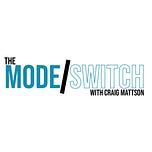Volume 1, Issue 3
Cheap talk about spirituality can make working professionals pretty mad. I found this out during a year of research, in which I asked 45 organizational leaders about spirituality in their professional lives. A lot of these leaders were eager to talk about spiritual practice: prayer, contemplation, yoga, silence, journaling, and so forth. But it didn’t take long for them to drop an F-Bomb at the suggestion that being spiritual at work was easy.
The frustration arose, I think, from a suspicion that “scaling mindfulness”—as I heard a conference guru put it—might just mean more company profits. Maybe the boss wants you to do yoga so you can have the headspace to close your accounts on time.
In any case, glib mixtures of business language and spiritual practice provoked obscenity. Scaling mindfulness? "What the f-ck is that?" one interviewee spat out. After hearing a speaker recommend high-priced Hawaiian retreats, another business leader laughed angrily: “Like, f-ck you. I don't want to rage, but don't tell me that that's what I need to do to have a more balanced life.”
But what about you? When you think about “being spiritual” on the job, what does that look like for you? If you’re like most people I talked to, you tend towards one of two approaches.
One approach celebrates mindfulness as a lavish personal good. Take the entrepreneurial consultant who supports women-owned businesses especially for mamas. She herself is a mother who describes getting up at 2:30 in the morning to meditate and to nurse her child: “I feel like when I'm kind of aligned fully to my spirit and to my purpose, there's an overflowing of joy and abundance and love.” Spiritually minded professionals like her tend to speak of awareness in the language of spontaneity and flow. For people like her, the guiding maxim would be something like, Awareness is ample; give it freely.
Other professionals, though, treated attention as a scarcity that obliges careful, disciplined, rational distribution. This second approach to mindfulness at work assumes that we are always running out of awareness—an assumption shared by contemporary self-help books like Distracted, Quiet, Rapt, Focus, and so on. This scarcity costs organizational leaders sleep as they try to figure out ways to raise public awareness, to train employees, to design user experiences, to cut through smartphone notification barrages. These are all awareness projects, though they have less to do with individual than with organizational attention. And their core maxim might be summed in Maria Konnikova’s words in Mastermind: “When it comes right down to it, there is no such thing as free attention; it all has to come from somewhere.” Awareness is sparse; spend it wisely.
I have learned a great deal from both these modes of workplace mindfulness. In fact, this post adapts a passage from Why Spiritual Capital Matters, a book-length digest of my own organizational spirituality research. In that book, you’ll encounter people all across the faith spectrum. Some of the people I talked to were spiritual but not religious. Some were spiritual and religious. Some were neither spiritual nor religious. (One guy even told me he was religious but not spiritual.) But all of them oscillated between these two approaches to mindfulness at work. One focus was individual wellness—Pay attention to your soul, people, so you don’t burn out!—and the other organizational mission—Stay focused, people, we’ve got work to do!
The biggest takeaway in my research, though, is that being mindful on the job might not make you powerful.
I remember one interviewee who told me a story about spirituality among her team members, all of whom shared the same religious faith. But somehow the topic of prayer at work had become a site for sharp disagreement. She looked up at me, as I sat there, scribbling in my composition notebook. Then she almost laughed and cried at once: “You may hear this, and go, ‘What the hell is she talking about?’” For this woman leader, as for many others, being spiritual at work, so far from eliminating pain and making you a giant of productivity, actually generates pain and may slow you down. Another business owner I talked to noted that waking up spiritually often means waking up to “the inherent difficulty of life.”
This awakening to difficulty contrasts sharply with popular misconceptions of workplace spirituality. I suppose that when most professionals think of the spiritually wise, they imagine luminous gurus strolling peaceful grounds, discussing deep things—not frenetic and fatigued managers dealing with crazy-busy work conditions with copious amounts of coffee. But the Book of Proverbs depicts Lady Wisdom as a blunt, urgent crier who heads directly for busy street corners. She doesn’t avoid chaos; she wades into it—even if she has to shout to be heard. “How long, O simple ones,” she yells, “will you love being simple?”
Or as one of my research participants asked, “What the actual eff is going on here?”
Everything hangs on how you ask the question. Do you blurt it snarkily and cynically? Or do you ask it genuinely, perhaps with a blend of anger and humor, but with true curiosity? I can’t help thinking that asking Lady Wisdom’s question on busy corners of your workplace is itself a mode of mindfulness. It is a way to pay attention. What’s going on here? No, really. I want to know. That kind of asking turns overwhelm into a way of seeing what the actual eff is going on for you, yes, but also for others, and for your shared work. The trick is not to wait for the overwhelm to pass to see things more clearly. The trick is to be overwhelmed in order to see things more clearly.
Who’s Saying Good Stuff?
Since this week’s post focuses on transgressive words in regard to workplace spirituality, let’s stop by some standbys, each of which asks not so much what earthy words mean as what they do. When King George VI has to overcome his stutter to address the nation, a tirade of expletives seems to be the key to his breakthrough. The example raises questions (and eyebrows) addressable by Professor McWhorter and the comedian George Carlin, both of whom discuss why exactly earthy language create bomb blasts in everyday speech.
King George VI overcomes his stutter—creatively—in The King’s Speech
John McWhorter’s Nine Nasty Words: English in the Gutter: Then, Now, and Forever
George Carlin’s “Seven New Words You Can Never Say on Television.”
X’s and Zs: An Intergenerational Glossary
For this week’s lexicon, I called up a millennial friend of mine, Susie Holmes. With my telemarketer’s sense for perfect timing, I reached her during dinner with her husband Ethan. They chimed in on some spiritually focused generational slang. What follows is an edited but spirited transcript.
Susie: I'm eating a kale salad. Classic millennial. Hit me with these words.
Craig: When somebody says, “Ethan is my spirit animal,” what’s up?
Susie: “Spirit animal.” So, it means, “It represents a part of myself.”
Craig: Some deep part of me?
Susie: I mean, people don't use it seriously. So, when they're like, oh, that's my spirit animal. They just mean basically, “I really like it.”
Craig: Alright, what about, “woo-woo?”
Susie: Are you talking about like, oh, “She sells crystals. She's kind of woo-woo?”
Ethan: I think for a Gen Z person it might mean something like “blah blah blah blah.”
Susie: People use it dismissively, but affectionately.
Craig: Last one: if we say that the universe is saying/telling you something, what are we talking about?
Susie: The universe is like—
Ethan: Faceless providence.
Craig: From the mouth of Obi Wan.
Susie: Exactly, because it's a way of saying something spiritual, kind of like providence, without any sort of religiosity.
Ethan: Like you’re the center of the universe.
Craig: I was under the distinct impression I was the center of the universe.
Susie: What about, can't even? Because that's another one. Like, “that's so good, it's weird.” Can't even could also be “so bad.” It's just like, “I can't even express this.” I don't often use it in moments of genuine inexpressible sorrow.
Craig: No words.
Susie: Exactly, yeah.
I want to hear from you! What questions do you have about early-career professionals and organizational life? Just reply to this email—I’ll do an edition on these questions in the coming weeks and I want to hear what you’re thinking about. - Craig















Share this post